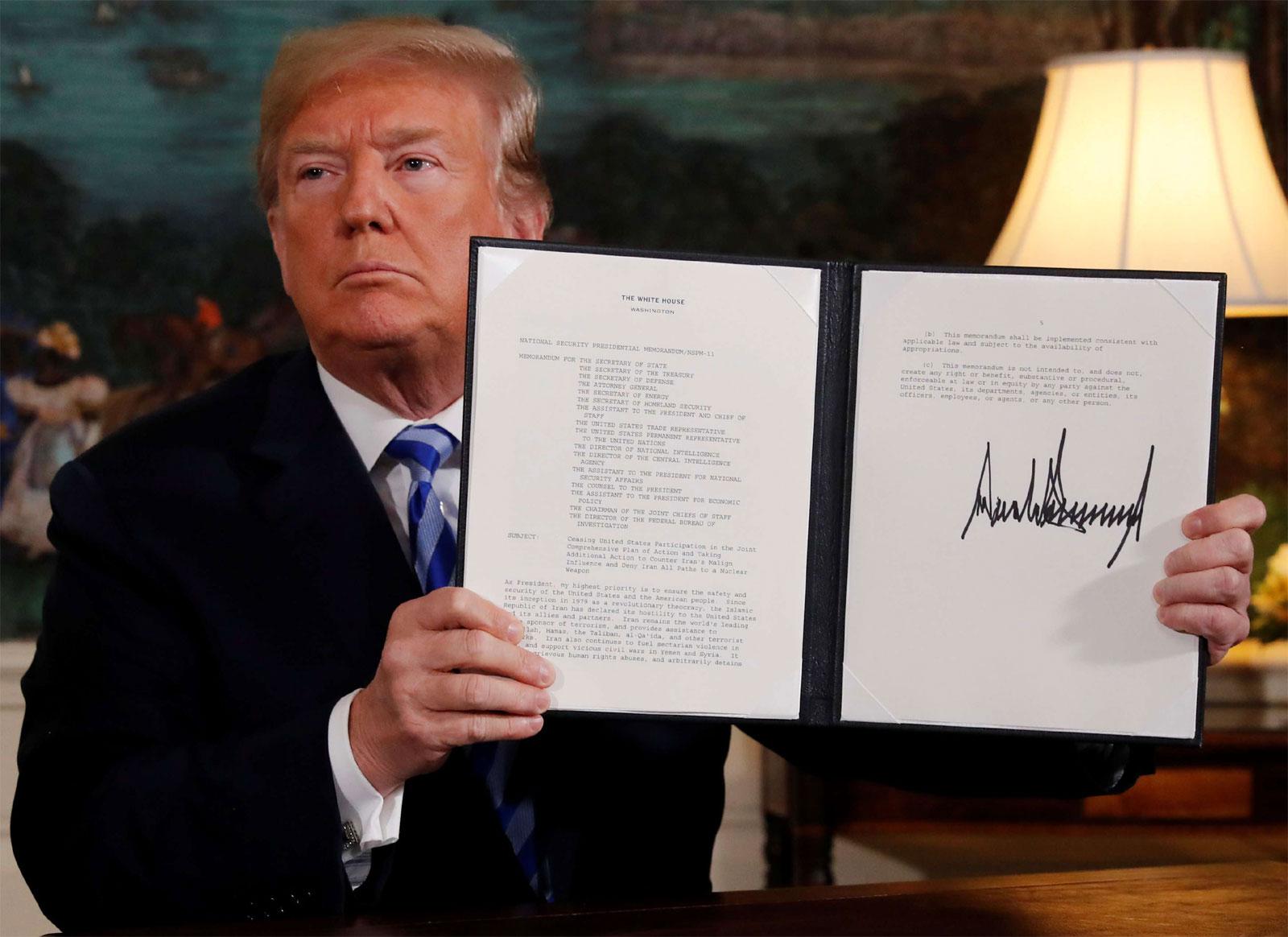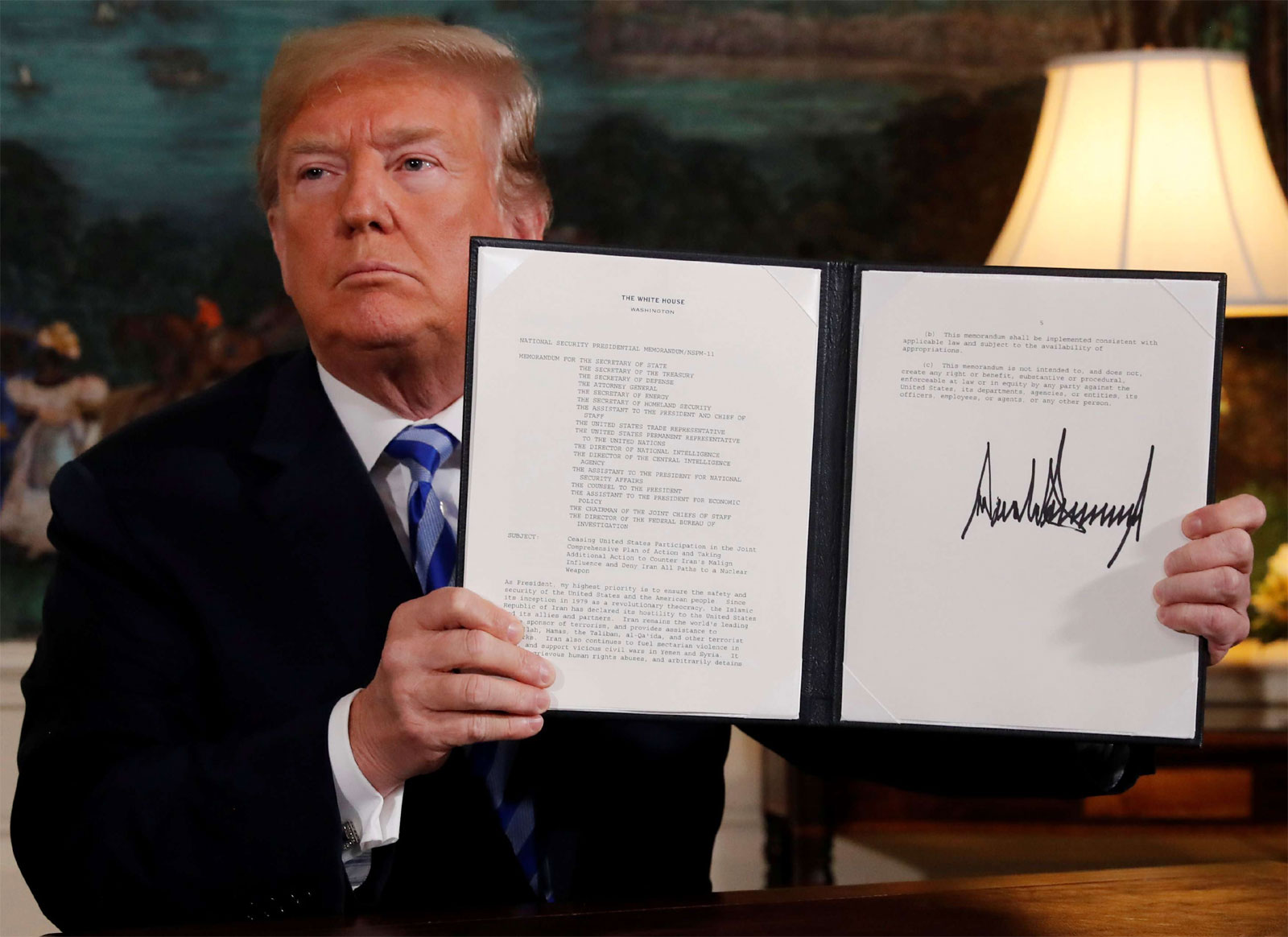The ambivalent US attitude toward Iran
Iran has cost the Gulf Arab countries a lot of human and tangible capital. Decades of confrontations of the hostile policies by Iran have left its neighbours exhausted and disoriented. If any to be blamed is the attitude of the United States which is marked by ambivalence and opportunism.
Alliance with the US has proven futile compared to many countries around the world which fortified themselves by overriding the challenges by alliance among themselves and emerged victorious with minimum costs. In contrast, the Arab nations paid the US a substantial part of national income without resolving any of the pending security issues.
Despite this, Arabs failed to see the overall picture of US support of both its allies and enemies to reap the spoils of the war.
Many indicators reveal that the US has no clear policy towards Iran. In fact, it has been in contact with Khomeini even before the Islamic Revolution. It was reported that Khomeini sent a message to the United States Government in 1963 in which he said “that he was not opposed to American interests in Iran” and that “on the contrary, he thought the American presence was necessary as a counterbalance to the Soviet and possibly British influence”. (The Guardian: US had extensive contact with Ayatollah Khomeini before Iran revolution).
Ever since the Islamic Revolution in 1979, the US proclaimed itself as an adamant opponent of the Islamic Republic of Iran, directing all public speeches against it and mobilizing the Arab nations against it until the outbreak of the Iraq-Iran 8 year war. At the peak of the war, the US sold weapons to Iran in what came to be known as the Contra scandal in 1985.
In fact, Iraq was disliked by the American Administration and it was black-listed and considered to be a supporter of terrorism, and that was what made the US instigate Iraq to invade Kuwait.
The New York Times then reported that Margaret D. Tutwiler, the State Department spokeswoman - when asked whether the United States had any commitment to defend Kuwait – said: ''We do not have any defense treaties with Kuwait, and there are no special defense or security commitments to Kuwait.'' (NT: US Gave Iraq Little Reason Not to Mount Kuwait Assault).
Simply put, Iraq was used as a tool to implement the US policy as well as to knock it down and rid Israel of its potential threat. Another incident goes back to the seventies when the US hostage crisis in Lebanon was resolved by Rafsanjani, who was the Parliament president in 1980s and a president later, who helped release American hostages and offered a $1 billion contract to the US oil company Conoco.
Such incidents reveal that the US is exploiting the combating parties and extracting the utmost benefit from both sides.
If the Gulf Arab nations are allying with the US openly, Iran follows a more cautious strategy of confidential negotiations to get concessions from the US.
The JCPOA made America reimburse the nation $1.7 billion in military equipment sale, exchange prisoners, and license the American Boeing and Airbus to sell aircraft to Iran, among others. The deal itself is a strong indicator that America in fact has a great respect for Iran and believes in its potentials more than the Arab.
Today, the US is carrying on the same policy, and fear is paramount that other Arab countries will be used in the same technique used with Iraq. The US has a stake in weakening the Arab nations more and depleting their resources and making them dysfunctional to the extent that they cannot survive without its support: That is, Arabs should be kept alive, but no too alive.
Given that this is the ostensibly unwavering US strategy toward Arab nations, some Arabs believed that the US is sincere and it is going to deter any assault by Iran. However, this alleged American animosity to Iran has gained the latter the admiration of anti-US countries - Iraq, Syria, Lebanon and Yemen. Moreover, Iran has been admired by the Shiite sect and the remnants of Marxist ideologists in the Arab world. It has also received immense support from many countries in the Middle East and Asia, especially China and Russia after the US considered it as the epicentre of chaos in the Middle-East.
The support has encouraged Iran as it has experienced minimal impact from the actions taken by the US. Also, other countries including France, the UK, and Germany consider the US actions against Iran irrational. Therefore, the presence of many nations supporting a peaceful settlement of Iran’s dispute with America emboldens Iran.
The result of the Arab Spring which was instigated by the US has gone contrary to the US expectations. Intervention by Iran has made its followers stronger and bolder. Foreseeing this, some traditional US allies are wooing Iran and distancing themselves from the US and its allies. Arabs are fragmented into pro-Iran and anti-Iran factions. Regardless of the results, Iran is posed today as a tough foe and US allies are dissatisfied with the alleged US support.







